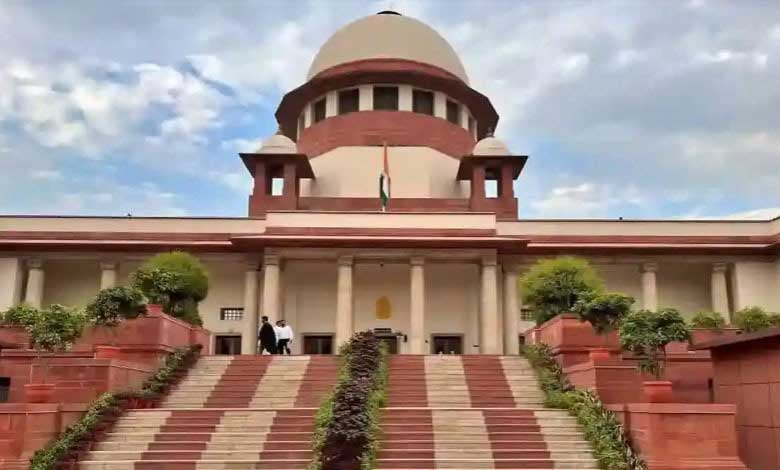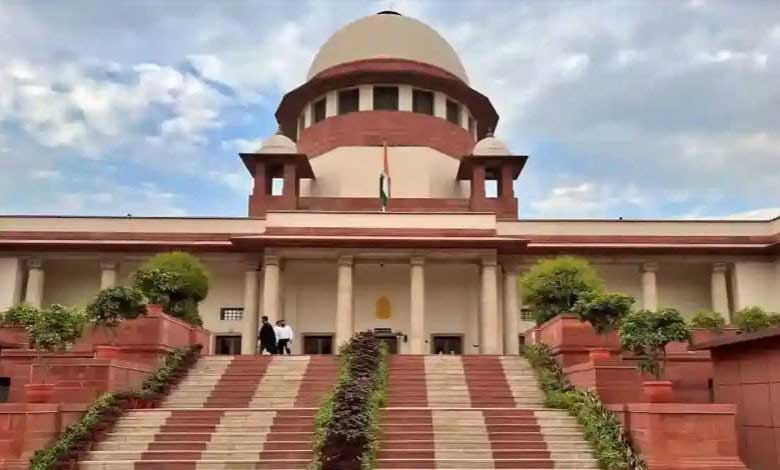Supreme Court Declares Right to Property as Constitutional Right under Article 300-A
The Supreme Court of India reaffirms the right to property as a constitutional right under Article 300-A, ensuring no individual can be deprived of property without adequate compensation, even after the Forty-Fourth Amendment of 1978.

New Delhi: In a landmark ruling, the Supreme Court of India has affirmed that the property right, while no longer a fundamental right, remains a constitutional right under Article 300-A of the Indian Constitution.
This judgment has significant implications for property owners, emphasizing that no individual can be deprived of their property without receiving adequate compensation by the law.
Table of Contents
Right to Property: A Constitutional Safeguard
The bench, comprising Justices B R Gavai and K V Viswanathan, clarified that although the Constitution (Forty-Fourth Amendment) Act, 1978, removed the right to property as a fundamental right, it still remains a constitutional right. Article 300-A of the Constitution states that no person shall be deprived of their property except through legal authority, ensuring protection against unlawful property seizures.
The ruling, delivered on January 3, 2025, was in response to an appeal challenging the Karnataka High Court’s 2022 judgment regarding land acquisition for the Bengaluru-Mysuru Infrastructure Corridor Project (BMICP). The case involved landowners whose properties were acquired by the state, but they had not received timely compensation.
The Land Acquisition Case
In this case, the Karnataka Industrial Areas Development Board (KIADB) issued a preliminary notification in January 2003 for acquiring land for the BMICP. By November 2005, the appellants’ land was taken over, but the compensation was not provided promptly. The delay in compensation was attributed to the inefficiency of the state authorities rather than the landowners, who had repeatedly sought redress for over two decades.
Despite the delays, the Special Land Acquisition Officer (SLAO) determined the compensation amount in 2019, using guideline values from 2011 to assess the market value of the land. The Supreme Court found that this valuation was unjust, as it failed to reflect the market value of the land in 2003, when the land was actually acquired.
Court’s Intervention: Ensuring Fair Compensation

The Supreme Court, exercising its powers under Article 142 of the Constitution, directed that the compensation for the appellants should be recalculated based on the market value prevailing as of April 22, 2019, the date when the compensation determination process began. This ruling is a step toward ensuring that landowners are not shortchanged due to bureaucratic delays and that their constitutional right to fair compensation is upheld.
The court noted that allowing compensation based on 2003 market rates would result in an injustice, as inflation and changing market conditions had significantly reduced the purchasing power of money over the years. In light of this, the bench emphasized the importance of prompt action in land acquisition cases and the timely disbursal of compensation.
Also Read | Supreme Court to Hear Plea Challenging Senior Advocate Designations by Delhi High Court
Implications for Property Rights and Land Acquisition
The Supreme Court’s decision reiterates the importance of safeguarding property rights in India. It reinforces the notion that the right to property, though no longer a fundamental right, remains an essential human right in a welfare state. The ruling also serves as a warning to government agencies and authorities involved in land acquisition, urging them to expedite compensation processes and ensure that the rightful owners are not deprived of their due rights.
The bench stressed that property owners should not be forced to wait for decades to receive compensation, and any delays should be addressed promptly to avoid undermining the constitutional guarantee of property rights.
